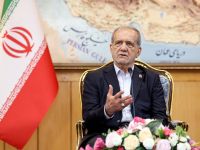Egyptian money exchanges are refusing to fix the price of the dollar, arguing it would be against the current free market policies embraced by the government. The dollar price has reached EL3.75 and currently stands at EL3.53.
The companies agreed to reduce the dollar's price in the market by limiting transactions with the commercially set price among themselves, and selling at the final same price to the customer.
Owners of some companies admitted keeping dollars off the market recently. They said some customers changed currency to buy dollars and hoard them in anticipation of higher dollar prices.
The owners of the companies asked the governmental officials to follow the transparency principle by revealing the real price of the Egyptian pound vis-a-vis the dollar.
The dollar price in the Egyptian markets has jumped to reach 355 piasters in the exchange companies from 348 piasters at the Egyptian banks.
The head of the Trade Chamber's Exchange Department, Mohammed El-Ebeid, attributed the reason for this increase to the growing demand for the dollar. He accused some businessmen of holding dollars, leading to a lack of dollar flow from companies and banks.
Meanwhile, Prime Minister Atef Ebeid said that there has been an increase of about one billion dollars in foreign investments in Egypt in the past 8 months as a result of an increased interest on the part of major companies to invest in Egypt. Ebeid said that there has been an increase of 400 percent in the number of foreign companies that have shown interest in investing in Egypt during the past 8 months compared with the same period last year.
Ebeid said that the rate of liquidity on the market was gradually returning to normal. There are no government restrictions on the flow of liquidity. The government intends to support initiatives by banks, which were approved by the central bank of Egypt, to ensure an increase in liquidity by helping to increase market stability.
Liquidity is increasing at an annual rate of 12.2 percent. This rate of increase is expected to continue next year. He said the volume of credit is increasing and, at the same time, banks are gaining in strength than before. The policy of extending loans is expected to continue in a more rational way by using former experience to ensure the safety of local and foreign deposits.
Ebeid expected an increase in revenues from oil of more than one billion dollars annually after it had dropped to $100 million in 1999. The anticipated increase will result from an increase in oil prices and big discoveries of oil and natural gas, particularly in the western desert. Natural gas reserves have reached 100 trillion cubic feet.
He said that the mission of the International Monetary Fund (IMF) expected the rate of real growth in Egypt to reach between 5.5 and 6 percent in 2001. The Prime Minister expected the rate of inflation to continue to drop to 3.2 percent next year as a result of a strict financial system adopted by the government. –(Albawaba-MEBG)
© 2000 Mena Report (www.menareport.com)







